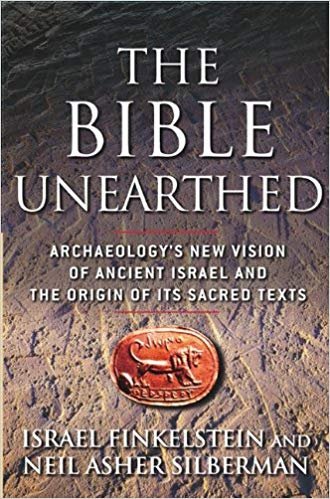 Warning, snark ahead!
Warning, snark ahead!
I have long argued — even from my Christian days — that Christians are obligated to keep Old Testament law. Christian apologists and theologians use all sorts of hocus pocus and hermenuetical wrangling to make such a demand go away, but the Bible is clear: the Old Testament law is valid, in force, and binding on all Christians today. Jesus is quoted as saying in Matthew 5:17-18:
Think not that I am come to destroy the law, or the prophets: I am not come to destroy, but to fulfil. For verily I say unto you, Till heaven and earth pass, one jot or one tittle shall in no wise pass from the law, till all be fulfilled.
See Bruce, Jesus came to fulfill the law. Now that Jesus has died and resurrected from the dead, the Old Testament law is no longer in force. Not the Ten Commandments? Not the prohibitions against homosexuality? Well, uh, you see, well, uh, anyway, how about them Cowboys?
Notice what Jesus said: Till heaven and earth pass, one jot or one tittle shall in no wise pass from the law, till all be fulfilled. Go outside, stand in your yard, and look up to the sky. Are heaven and earth still standing? Yep, so that means that Old Testament law is still in force. Remember, when Jesus spoke these words, his “Bible” was the Old Testament. There was no New Testament, no gospels, no writings of Paul. Jesus, the good Baptist that he was, carried with him and read a leather-bound Oxford King James Old Testament. Which is odd when you consider that Jesus was God and he, through his spirit sidekick the Holy Ghost, spoke the words of the Bible into existence. (2 Peter 1:21 and 2 Timothy 3:16-17) Or so Evangelicals say, anyway.
Oh, Bruce, you are nuts. Christians are saved by grace and live under the New Covenant. Hmm, are you saying, then, that the people in the Old Testament were saved differently; that they were saved by works; by keeping the Law of God? Well, uh, you see, well, uh, anyway, how about them Raptors? Bruce, surely you know that God’s law is broken up into three categories; Moral, Civil, and Ceremonial. Really? Where can I find such divisions in the Bible? I’ll wait. Go look. Keep looking. Can’t find anything? Come on, how hard can it be? Don’t quote John Calvin or Rousas Rushdoony. I want it straight from the inerrant Word of God. No luck? How about admitting you are just making shit up to distance yourself from the clear implication of Jesus’ words in Matthew 5: that all Christians are under and obligated to practice Old Testament Law; and that failing to do so is a sure sign that someone is not a follower of Jesus.
Evangelicals, in particular, love to call themselves “people of the Book.” Supposedly, the Bible, from Table of Contents to Concordance, is the inspired, inerrant, infallible Word of God. If this is so, why don’t Evangelicals keep the Old Testament law? Why do Evangelicals, in fact, pick and choose what they want to believe from the Old Testament? Why do Evangelicals clamor for the posting of the Ten Commandments on public classroom walls, yet don’t actually believe all ten commandments are binding and in force today? When’s the last time you’ve seen an Evangelical “remember the Sabbath Day and keep it holy? Going to church for an hour or two on Sundays AIN’T keeping the Sabbath holy. Sorry Baptists, no NFL on Sundays for Sabbath keepers. Well, wait a minute, isn’t the Sabbath from Friday to Saturday? So, NFL football is okay, but not college football. No Ohio State, Alabama, Texas or USC. Man, talk about suffering for Jesus.
Centuries ago, Christians had the opportunity to distance themselves from the Jewish Old Testament. Instead, they appropriated it for their own, and it hangs around their necks like a millstone to this day. I bet they wish they had a do-over on that one.
Bruce, you are certifiably crazy. Yes, but that’s beside the point. I am sure you are wondering if I have any proof for the assertions made in this post. Quote one theologian who believes this, you say, thinking you got me right where you want me. Well, get ready to have your hemorrhoids massaged, Buddy.
Eminent New Testament scholar Dr. Bart Ehrman recently wrote a post titled, Should the Old Testament Even be in the Bible? Here’s an excerpt:
First I must deal with the all-important prior question I have already alluded to. If, very early in their history, Christians chose to bypass precisely the laws and instructions the Bible enjoins on the people of God, why did they see any utility of having the Old Testament at all? If it was outdated, why not simply jettison it altogether?
Early Christians took a number of different approaches to that question. One view can be assigned to the historical Jesus himself and his very earliest followers – the disciples and their converts.
These were Jews dedicated to following the will of God as expressed in the Law of Moses. The Hebrew Bible was their one and only Scripture. It was to be kept. Yes, it had to be interpreted – every legal code has to be. But it was absolutely, and literally, to be followed. All of it: circumcision; Sabbath observance; kosher food laws; festivals.
This view never completely died out. We know of Christian groups who adhered to it for centuries. Some still do today. It is a view placed on Jesus’ lips in Matthew, the very first book of the New Testament, in passages typically overlooked by Christians both ancient and modern who don’t believe that Jesus could possibly urge his followers to keep the Jewish law. But in fact he does, in no uncertain terms – nowhere more clearly than in the famous Sermon on the Mount (ironically, perhaps, revered throughout history by even the most virulent Christian opponents of Judaism):
Do not think that I have come to abolish the law or the prophets; I have come not to abolish, but to fulfill….. Therefore, whoever breaks one of the least of these commandments, and teaches others to do the same, will be called least in the kingdom of heaven; but whoever does them and teaches them will be called great in the kingdom of heaven. For I tell you, unless your righteousness exceeds that of the scribes and Pharisees, you will never enter the kingdom of heaven. (Matthew 5:17-20)
How many of the commandments found in the Jewish Scriptures need to be followed? All of them. Even the least of them. No exceptions. In fact, Jesus’ followers have to follow these commandments more scrupulously than the famously scrupulous scribes and Pharisees.
Jesus continues in the sermon to explain just how his followers are to be more righteous than the Jewish religious leaders of their day. Needless to say, it will take special effort. The law says not to murder? You need to go a step farther: you shouldn’t even get angry with someone. It says not to steal your neighbor’s spouse? You shouldn’t even want to. It says to be just in your judgment, and make the penalty fit the crime (“an eye for an eye and a tooth for a tooth”)? You should instead show mercy (“turn the other cheek”).
Christians have tended to read these “Antitheses” as Jesus’ abrogation of the law, but that is precisely wrong. He does not get rid of the law or absolve his followers of the responsibility of keeping it. He does not say: “The law says you shall not murder, but I say you should.” Instead he accepts the literal interpretation of the law and then makes it both more difficult and not simply a matter of external observation. Literal adherence is not enough: doing the will of God as found in the law requires a heartfelt commitment that affects even attitudes, emotions, and desires. But one still has to follow the literal law.
….
Snap, Skippy! Best be reading the Old Testament Law and putting it into practice! Your eternal destiny depends on you keeping every jot and tittle of the Law. I didn’t say this, Jesus did. To quote the plethora of apologists who have dumped loads of raw sewage on this blog, your problem is not with me, it’s with God. I’m only God’s mouthpiece.
Thus saith Bruce Almighty.
If you are not a member of Dr. Ehrman’s blog, I encourage you to join today. $24.99 a year, all proceeds go to charity.
About Bruce Gerencser
Bruce Gerencser, 62, lives in rural Northwest Ohio with his wife of 41 years. He and his wife have six grown children and twelve grandchildren. Bruce pastored Evangelical churches for twenty-five years in Ohio, Texas, and Michigan. Bruce left the ministry in 2005, and in 2008 he left Christianity. Bruce is now a humanist and an atheist. For more information about Bruce, please read the About page.
Thank you for reading this post. Please share your thoughts in the comment section. If you are a first-time commenter, please read the commenting policy before wowing readers with your words. All first-time comments are moderated. If you would like to contact Bruce directly, please use the contact form to do so.
Donations are always appreciated. Donations on a monthly basis can be made through Patreon. One-time donations can be made through PayPal.


